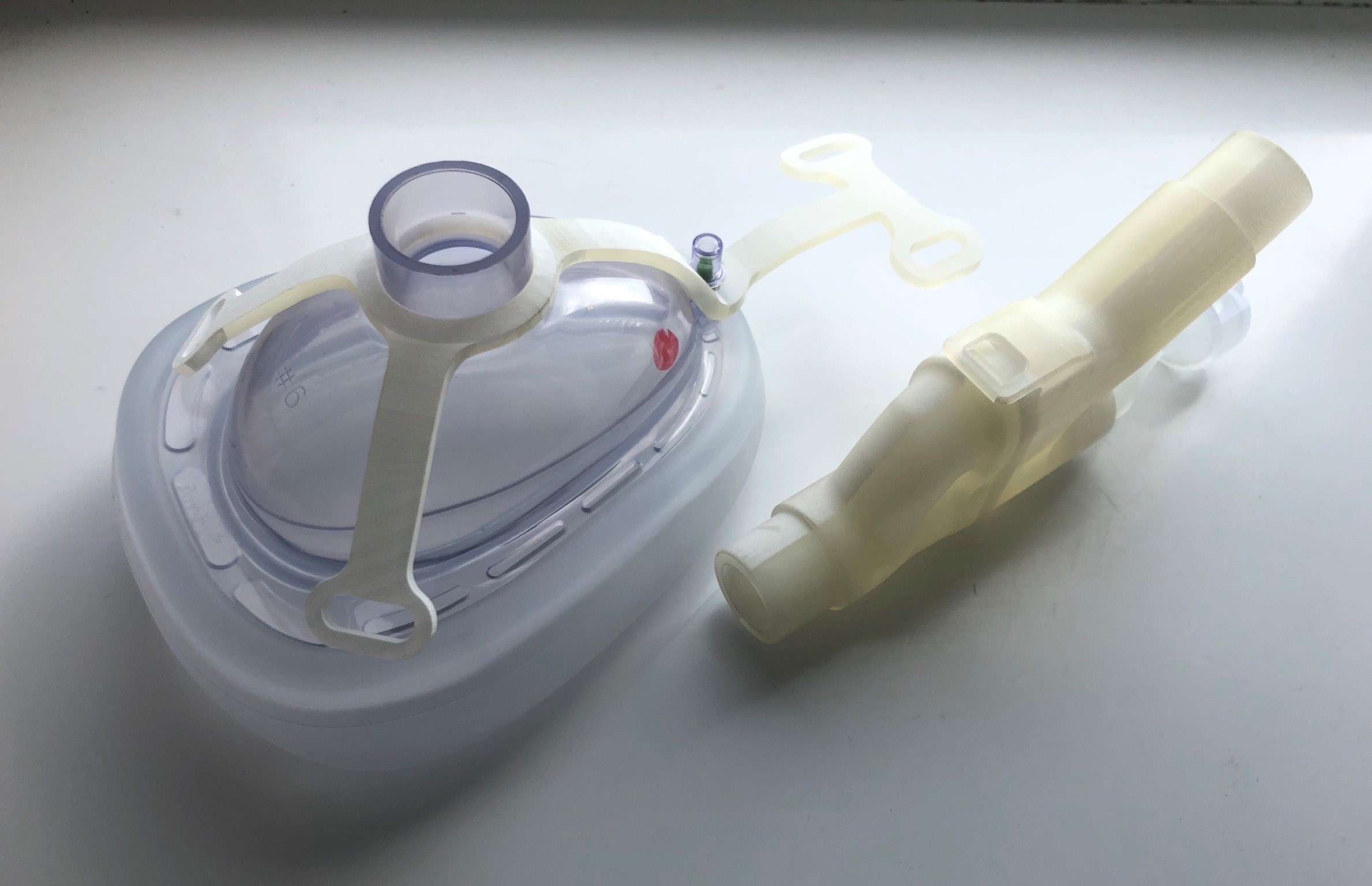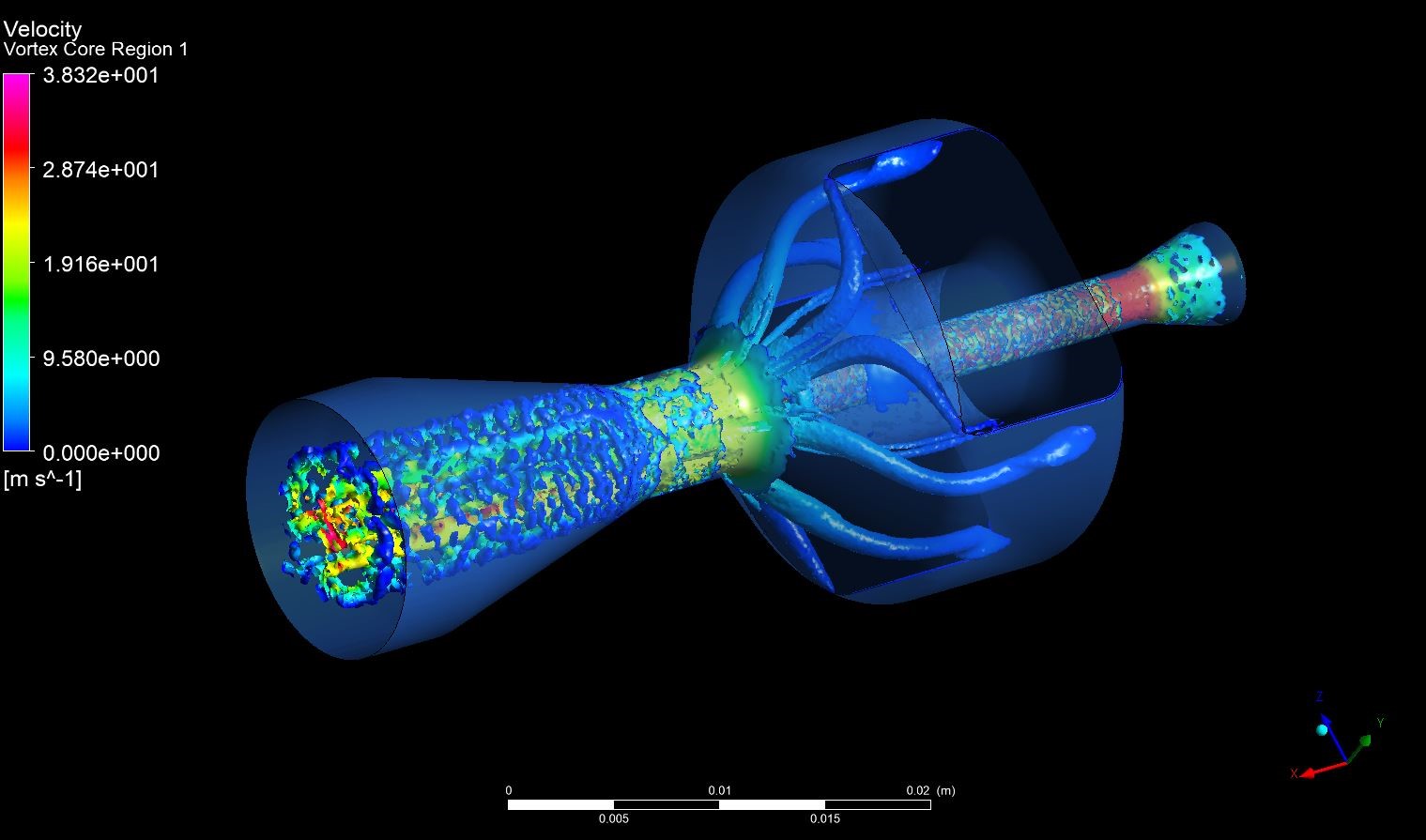UWTSD team who developed respiratory support system to help fight against Covid 19 named 2022 Innovation, Science & Technology Award winners
08.04.2022
A team of engineers from the University of Wales Trinity Saint David (UWTSD) who developed a 3D-printed jet respiratory support system to help the NHS in the fight against Covid 19 have received the 2022 Innovation, Science and Technology Award at the prestigious St Davids Awards in Cardiff.

The awards recognise the extraordinary achievements of people from across Wales.
Presenting the awards, First Minster Mark Drakeford said it had been an inspiring and moving evening and humbling to hear the stories. He added that the finalists were all truly inspirational and a credit to Wales.
Graham Howe, Executive Head of Made Cymru said: “To win a St David Award is such an exciting accolade and proud moment for the team and clearly demonstrates how the R&D work at UWTSD can address critical global challenges. This project shows the multi-disciplinary world of Engineering and what we can achieve when we work together. We used our engineering skills as creative problem solvers to try to help solve our biggest challenges.”
It was back in May 2020, that UWTSD’s Luca Pagano, Graham Howe, Professor Peter Charlton, John Hughes, and Richard Morgan decided to focus their expertise on the development of a highly efficient 3D printed jet Venturi based respiratory support system to help the NHS during the initial COVID-19 outbreak.
The main objective was to develop a device that could be manufactured cheaply, rapidly and, at the same time, be user friendly whilst maintaining high performance levels. The device was optimised to be able to perform CPAP functionalities such as maintaining PEEP pressures in scenarios such as overwhelmed hospitals where oxygen supply was limited.
UWTSD’s Luca Pagano, Senior Research Project Engineer atMade Cymrusaid: “We found that standard CPAP devices are extremely inefficient, our device instead could function utilising a third of the oxygen. It’s also very uncommon for Venturi devices to be able to confidently maintain positive pressure within the patient’s airways while delivering correct gas mixtures. This was achieved through numerous iterative steps between modelling and testing.”
John Hughes was a key member of the team and a UWTSD Masters student at the time, studying Motorsport Engineering. He said: "I was responsible for carrying out vital multiphase numerical modelling of the 3D printed, jet Venturi based system. We proved it outperformed most of the available devices at a fraction of the cost. It was a humbling experience to be part of the team. I graduated soon afterwards, and it definitely helped me get my current job as an Aerodynamicist at Sabe Fluid Dynamics.”
A Lead Bio–Medical Engineer in Nepal who had read the news about the Venturi asked if the team could share their 3D files for printing in his hospital in Pokhara where the COVID-19 situation was worsening by the minute.
The team responded rapidly setting a license agreement and subsequently transferred all the documentation/technical files and supported the Nepalese engineers with any queries. The device was successfully manufactured with low-end desktop 3d printers and adopted to save lives.

Graham Howe added: “Dr Steven Fielding brought the initial problem to my attention 10 years ago before I joined the University. He and I worked on the idea, along with David Williams from UWTSD's School of Manufacturing & Logistics, who was studying for an MSc Lean & Agile part-time.
“我们把它捡起来在Covid倍我们意识到d it had the potential to really help, especially in the context of scarce oxygen supplies. But there were still significant issues to resolve in terms of the physics of it and so it could be additively manufacturing around the globe in places like Nepal.
“To be shortlisted and then win a St David Award is such an exciting accolade and proud moment for the team and clearly demonstrates how the R&D work at UWTSD can address critical global challenges.”
Barry Liles, OBE, Pro Vice-Chancellor (Skills and Lifelong Learning) at UWTSD said: "The University is pleased to see this team being recognised for their collaborative, innovative efforts undertaken at the height of the pandemic. Whilst striving to maintain their day-to-day workload, with all the restrictions that Covid placed them under, they worked above and beyond to rapidly find a solution which has yielded significant benefit. Their passion and enthusiasm shone through as they drove to secure a positive outcome."

Further Information
Rebecca Davies
Swyddog Gweithredol Cysylltiadau â’r Wasg a’r Cyfryngau
Executive Press and Media Relations Officer
Cyfathrebu Corfforaethol a Chysylltiadau Cyhoeddus
Corporate Communications and PR
Mobile:07384 467071
Email:Rebecca.Davies@www.guaguababy.com





